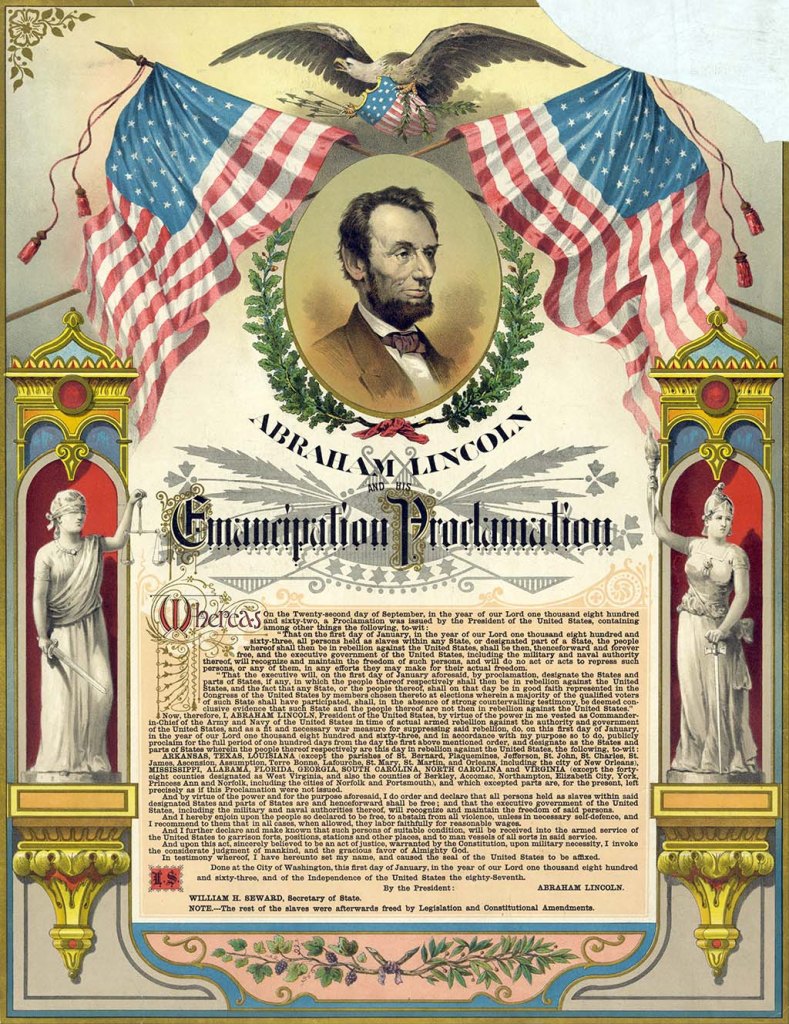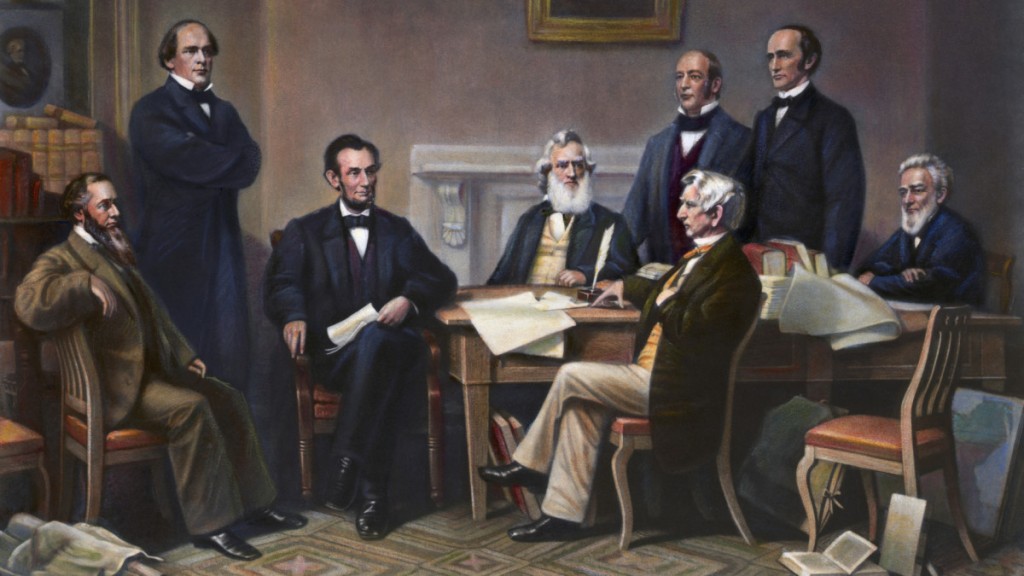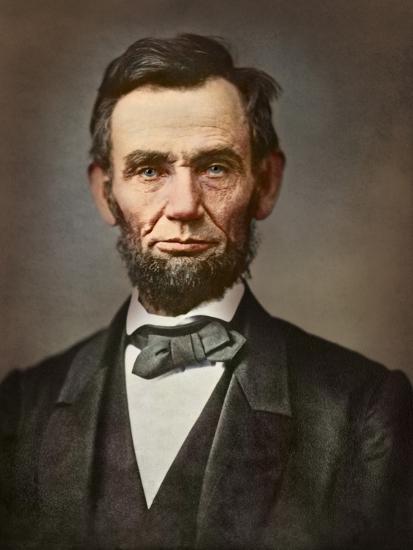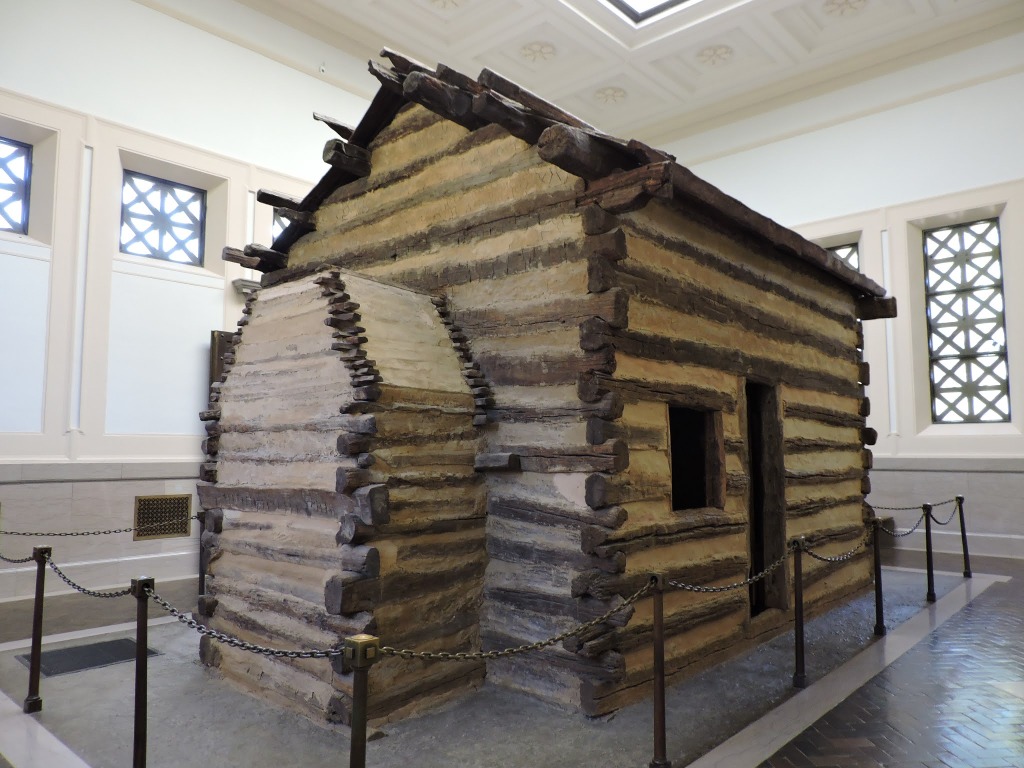
To some men there are given a few great moments in life, while all the rest is commonplace. Lincoln had his great moments, for ‘he grew in stature and in wisdom,’ but he was never commonplace. He was marked by a solemn grandeur from the rude and lonely hut on the frontier until a nation stood beside his tomb. There was about him a dignity which no uncouthness of surroundings could blot out. He had a mind which no lack of letters could leave undeveloped. He had a faith which could move mountains. Two generations have sought out whatever could be associated with him, have read the record of his every word with the greatest eagerness, and held his memory as a precious heritage. Where he trod is holy ground. Yet never was a man more simply human...
He learned how to make facts clear and a principle of the law plain. Seeing his great ability, knowing his self-sacrificing honesty, the people came to have a great faith in him as he had a great faith in them. In the course of events he was sent to Congress…Nothing ever seemed to stand in the way of his being able to see the simple truth, and nothing ever seemed to move him from his wish to see the truth win. He had no will to fight for what was wrong. He might stay his hand for a while, but in the end, knowing the right, he held to it with a power which finally could not be overcome.
Coming home at the end of his term, he took up again the work of the law, but soon he had other work to do. There was never any question about what he thought of slavery. He hated it with the whole force of his whole being; but he believed not only in freedom, he believed in the Constitution of his country. He said that slavery was legal; that a Fugitive Slave Act would be valid. He had a great faith in the law. He knew that without it there would be no freedom. While he would stretch out no lawless hand against slavery, while he would observe the finding of the court in its favor, he was against its extension through the passage of any new law or the unwarranted interpretation of any old law. He was not a radical, but a conservative. He never sought to waste, but always to save. He had a love for his country so great, a faith in its people so deep, that he believed if the Union could stand according to the Constitution and the law the evil of slavery would finally fall of its own weight…
The story of this man spread…When the men of the new Republican Party met, many leaders had many different plans, but in the end the urge of the will of the people chose Lincoln. He was elected. He took office amid great stress and strain…Clearly, steadily, drawing those who loved their country more than all else around him, he kept one end alone in view, the saving of the Union…
He saw the failure of his armies through nearly two campaigns; then came Antietam. Knowing that the time for which he long had waited had come, he issued the Emancipation Proclamation. He believed at last that it was possible, by breaking slavery, to keep the Union whole. Henceforth the war was not only to save the nation but to make it free…The great evil which had lain on the soul of the whole nation had been purged away by the awful scourge of war. The flag of our country had come to have the meaning which Webster said it should have. At last Liberty and Union were one and inseparable. In this hour, which was to him not one of triumph but of duty alone, the spirit of Lincoln, released from a life of anguish, returned to God who gave it…

So there came to an end this life in which the meaning of human existence reached its flood. It had within its scope every range of experience between the most humble and lonely beginning and the highest and most famous place that man could hold in all the world.
Who can look upon it and feel that stern circumstances have denied to any one a chance?
Who could know Lincoln and not have hope and faith?
He showed that the only bounds set to the height to which a man shall rise are those which he sets himself.
In the practice of law he never relied on deceit. In seeking office he used no pretense. The end he sought in life was truth through honesty. He wished to have what that could bring; no more. He did not ask that others should take his burden from him; he asked to take their burdens from them, humbly seeking the guidance of man and of God as to how it might be done. He worked with the Unseen.
What an answer he is to all those who would tear down.
All his work was to save and to build up. He wished to make himself better; he wished for gain; he wished for place. He did not try to get these by casting aside the only sure means by which they could had. He did not seek them without humility, without industry, without honesty, without forbearance, and without faith. He spoke against the seizing and pulling down of the house of another, and in favor of building up and making safe the house of oneself. He knew that those who made the best of what they had were the only ones who were sure to have more…
Lincoln made the same appeal to his countrymen which all great men have made. There was in it nothing small or mean. No man ever had a greater love of humanity. But it came not from his belief in their weakness but in their strength. His faith was not in the things of the flesh. He held out no promise of ease. He knew there could be no growth without toil, no character without effort. His faith was in the things of the spirit. He believed all men were great enough to be free. He besought them to strive mightily that they might come unto their true estate. He knew that freedom was not easy, that its burden was not light; that it could be only for those who dwelt in the high places; that to have it and keep it was a great task. But he did not hesitate to call the people up into the high places; he did not cease to urge that with increased devotion they should highly resolve to be dedicated to the great task. They heard and they obeyed.

The place which Lincoln holds in the history of the nation is that of the man who finished what others had begun. What they had dared to dream of, he dared to do. He does not lessen the glory of what they did, rather he adds to it. They built a base that was sound and solid. They left plans by which it was to be finished. The base which they made was the Union. The plans which they drew, and stated time and time again, were for a free people. But Lincoln rises above them all in one thing. He never halted; he never turned aside. He was no opportunist. He had no lack of tact. He had a mighty sense of what was timely. He was wise as a serpent. But he did not stop part way; he followed the truth through to the end. In this peculiar power it is not too much to say that he excels all other statesmen…
He answered for all time the question of whether the selfish interests of a part, or the greater interest of the whole should be supreme. This contest had been confined to no one locality and to no one issue. New England had turned to it when she thought it would make for her welfare. The South clung to it when she believed it was for her advantage. The National Union which Washington and Hamilton had formed, which Marshall had declared, which Webster and Jackson and Clay had defended, Abraham Lincoln saved, and saving, made it free…
He saw clearly that no free government could derive its just powers from anything less than a free people. What he saw, what he believed, when the time came he was ready to do. In all things he followed the truth to the end…
It is not to the city of Washington that men must turn if they would understand Abraham Lincoln…Too often the world turns its eyes to the high places, thinking that from them will come its revelations and its great events, forgetful that a greater wisdom is in those who ‘mind not high things, but condescend to men of low estate.’ The greatest epoch in all human history began in a manger…
In the memory of these facts there lies a solid basis for our faith. There is in the people themselves the power to put forth great men. There is in the soul of the nation a reserve for responding to the call to high ideals, to nobility of action, which has never yet been put forth. There is no problem so great but that somewhere a man is being raised up to meet it. There is no moral standard so high that the people cannot be raised up to it. God rules, and from the Bethlehems and the Springfields He sends them forth, His own, to do His work. In them we catch a larger gleam of the Infinite.
— Calvin Coolidge, at Lincoln’s Birthplace in Springfield, Illinois, February 12, 1922

[Editorial Note: Are not, then, the dates of greater import, on which Juneteenth, ultimately, owes all of its significance, Independence Day on July 4, or perhaps the day Congress ended the slave trade (January 1, 1808), or perhaps the day on which the Emancipation Proclamation was publicly declared (January 1, 1863) or even the dates of passage — January 31, 1865; June 13, 1866; February 26, 1869 — or ratification by the states — December 6, 1865; July 9, 1868; February 3, 1870 — of what Coolidge would call the War’s “great freedom amendments”: the 13th, 14th, and 15th? Why should we celebrate the day an unfortunate few in Galveston, Texas, learned of the freedom that was already theirs…granted not by an army or local authorities but an Almighty God whose Father we all are?
Who else might have learned about the Proclamation well after its public announcement? Should their day of realization be excluded from the federal calendar? If so, why and, if not, where should it end? Should we not celebrate the day all earned it as Americans, born and yet unborn, without distinction of race, creed, color, background? Is this fragmentation of cultural identity, competition of interest, and outright Balkanization of the Union those who came before us, including Lincoln himself, not to mention generations of America’s melting pot of immigrants, of all colors, have striven to overcome?]